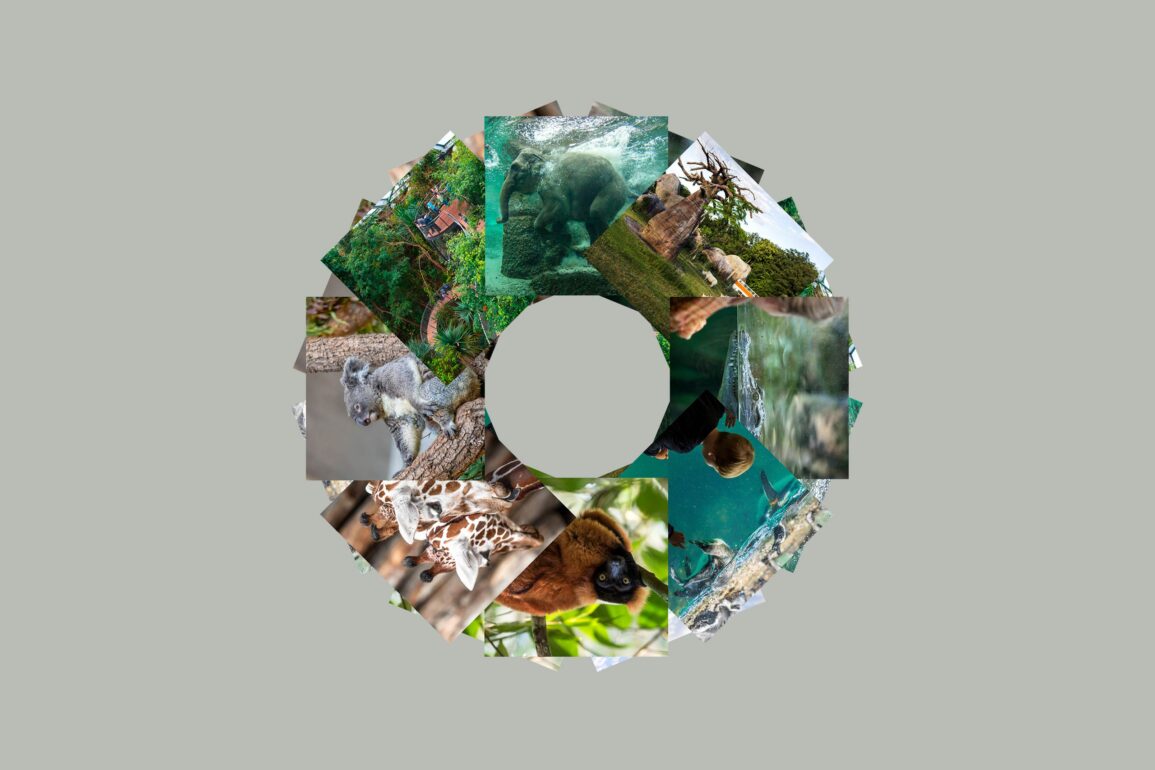Through its diverse, 26-strong board of trustees, the Zoo Zurich Foundation is able to draw on a large network to support the zoo and its projects.
First the number 5 tram all the way up to the turning circle at the top of the ‘Züriberg’, then a 200–300 metre walk, past the cemetery with its famous literary and theatrical occupants, through the turnstile and suddenly there they are – penguins and flamingos. I have left the constant drone of the hectic city far behind and find myself in a calm and completely different world. You may recognise the feeling.
The zoo has been a constant in the lives of many Zurich natives. It was opened on 7 September 1929 by the then-mayor Emil Klöti. In the course of its 92-year existence, it has grown into an impressive medium-sized enterprise with a revenue of 63 million francs and 256 full-time staff. Alongside its employees, the zoo management is also able to call on a team of over 300 volunteers, who provide an average of 30,000 hours of voluntary work over the course of a year. The team has been helping out for 20 years and at busy times – typically Wednesday afternoon and weekends – it would be impossible to imagine the zoo without them. Thomas E. Kern, chair of the Zoo Zurich Foundation points out, ‘As well as stimulating the economy, Zoo Zurich plays an important cultural role. Our high-quality cultural programme enhances the local quality of life and the attractiveness of Zurich as a location.’
Zoo Zurich Foundation since 1999
The Zoo Zurich Foundation is a charitable organisation, set up in 1999 to support Zoo Zurich in its fundraising. Thomas E. Kern emphasises, ‘The foundation board ensures that donations are earmarked and used in Zoo Zurich’s interest.’ All funds, whether received directly by Zoo Zurich or via the foundation, go towards the same expansion projects. The foundation does not play an operational role. Its sole focus as the Zoo Zurich Foundation is the development of Zoo Zurich. Criticism of the zoo is minimal. ‘That probably has to do with the ongoing improvement of our facilities and our spacious enclosures,’ Thomas E. Kern maintains, continuing, ‘The wellbeing of our animals is at the heart of our activities and the majority of visitors recognise that. We invest in building and renovating animal enclosures and actively inform the public about our construction plans. And observations from visitors are taken very seriously.’
Foundation board member by appointment
The Zoo’s foundation board of trustees is hand-picked. Thomas E. Kern is keen to point out, ‘Today’s foundation boards are no longer put together along old-boy network lines.’ The Zoo Zurich Foundation has a large board, made up of 26 individuals. ‘They are all ambassadors of the zoo and bring with them a broad – private or professional – network of people keen to donate,’ explains the chair of the foundation board.

Thomas E. Kern has been a board member of the Zoo Zurich Foundation since 2006 and its chair since 2014. His previous roles include CEO of the Globus Group and CEO of Flughafen Zürich AG.
The Zoo as a centre for nature and species conservation
According to foundation chair Thomas E. Kern, Zoo Zurich has developed over the years into the largest and most visited cultural and educational institution in Switzerland. By providing information and a diverse range of experiences, the zoo aims to inspire visitors to support nature and species conservation. The credo: ‘People who know animals will protect them.’ ‘Through our animals, conservation exhibitions, guided tours and animal presentations, we reach an audience of between 1.2 and 1.4 million people,’ reports Thomas E. Kern. Spotting the animals and experiencing them live are of primary importance. In addition, Zoo Zurich uses the whole range of modern communication tools, including Facebook, Instagram and Twitter, to remain in touch with the community before and after a zoo visit.
Masoala National Park in Madagascar
One of the eight nature and species conservation projects Zoo Zurich supports is Masoala National Park in Madagascar. It receives at least 125,000 US dollars a year. The money goes to the park’s sustainability fund. Further projects are carried out in close cooperation with Masoala National Park and the Wildlife Conservation Society WCS, ranging from reforestation and the introduction of regenerative, sustainable agriculture to educational projects for children. Their aim is to offer the population of Madagascar profitable alternatives to the slash-and-burn farming that is destroying the rainforest. Since this long and sustainable collaboration began back in 1995, over 6 million francs have poured into the project, and over 40,000 people have benefited as a result.
Extending a warm welcome to bats
On a local scale, Zoo Zurich is committed to the protection of bats. In 1998, Zoo Zurich welcomed the Swiss Bat Protection Foundation to set up base at the zoo. From here, the Swiss Bat Protection Foundation is able to run its information and education activities and fulfil its role as the Swiss coordination centre for bat protection. Zoo Zurich operates an emergency bat clinic in Zoolino in partnership with animal protection organisation Zürcher Tierschutz and the Swiss Bat Protection Foundation. It is right next-door to the Swiss Bat Protection Foundation’s information and education centre ‘Bat World’, where six themed rooms take visitors on an interactive journey of exploration.
Planning for the next 30 years
The foundation board’s work never ends. Thomas E. Kern points out, ‘A zoo completely revamps itself every 30 to 50 years. We are currently working on our expansion and upgrade plan for the next 30 years. The aim is to present it to the public in September 2021.’ The plans include a large aviary and a new home for gorillas and orangutans. As ever, these expansion projects are to be funded with donations from private individuals and foundations. Initial information can be found on the home page.


